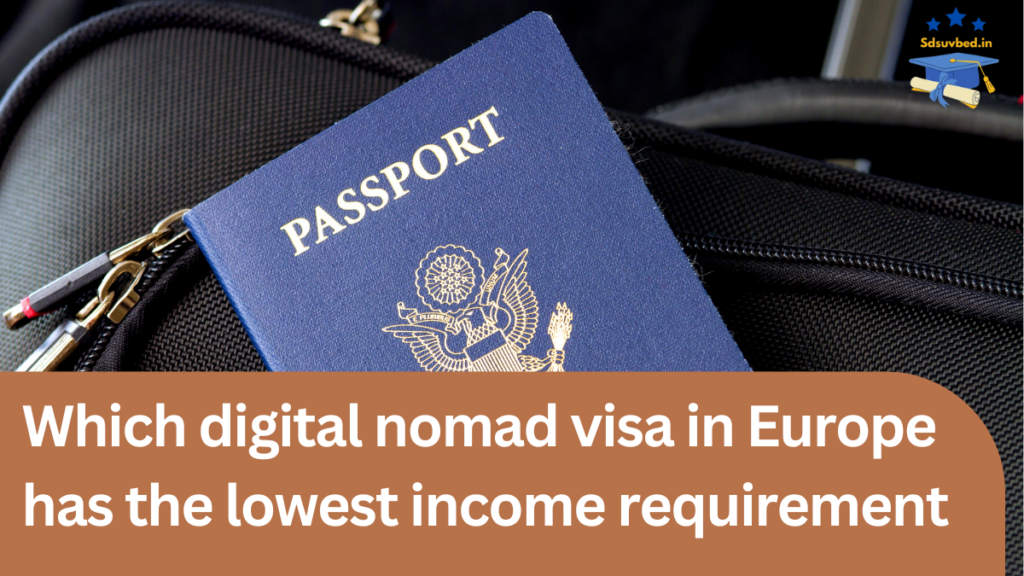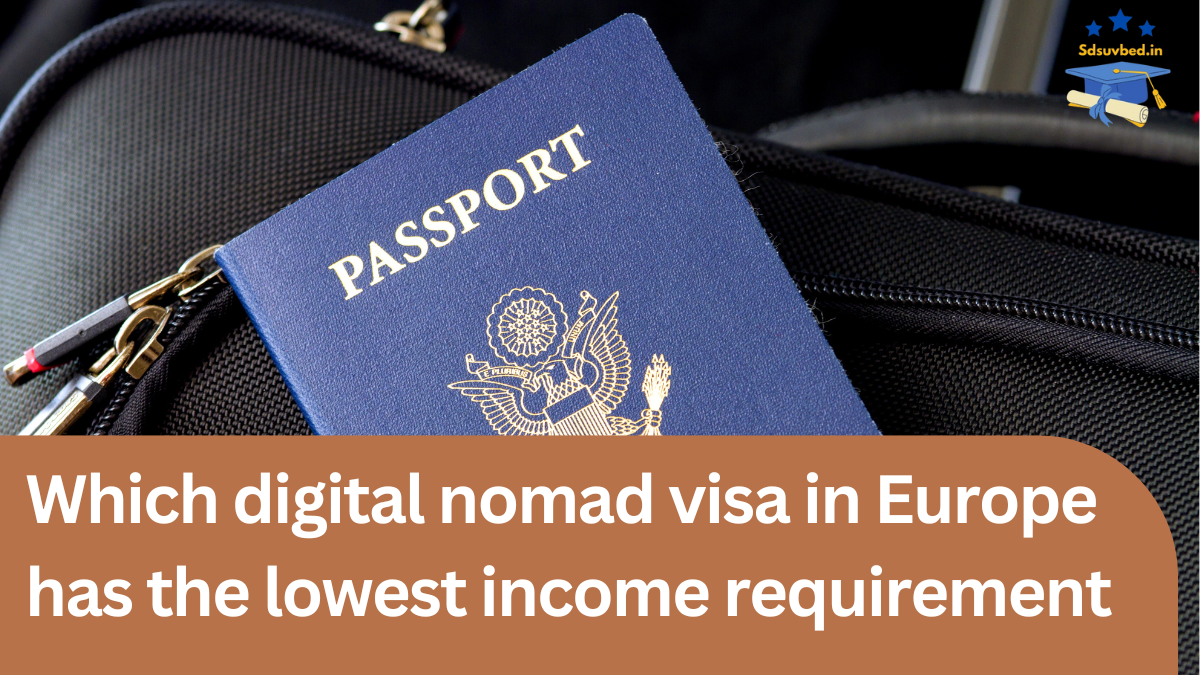Spain is adjusting its income requirements for digital nomad visa applicants in 2025. While this change may seem significant, Spain’s visa remains relatively low compared to other European countries.

What’s Changing in 2025?
Starting in 2025, foreigners applying for Spain’s digital nomad visa will face higher income thresholds. These thresholds are linked to Spain’s minimum wage, which has seen a 4.4% increase for the year.
Key Income Requirement Adjustments
- Minimum Wage Increase: Spain’s minimum wage will rise by €50 per month, bringing the monthly income up to €1,184 (€16,576 gross annually) based on 14 payments.
- Digital Nomad Visa Income: The required income for applicants is calculated at 200% of the minimum wage, which translates to €2,762 per month (up from €2,650 in 2024).
Also Read: Your Ultimate Guide to Securing a Work Visa for Greenland in 2025
Breakdown of Monthly and Yearly Income Requirements:
| Income Requirements | Amount (2025) | Amount (2024) |
|---|---|---|
| Monthly Minimum Wage | €1,184 | €1,134 |
| Required Monthly Income for Visa | €2,762 | €2,650 |
| Gross Annual Income for Visa | €33,144 | €31,800 |
Despite the increase, Spain’s digital nomad visa is still one of the more affordable options in Europe. Let’s take a look at how other European countries compare.
How Spain’s Digital Nomad Visa Stacks Up Against Other European Countries
Although Spain has raised its requirements, it’s still not the most expensive in Europe. Here’s a comparison of income requirements for digital nomad visas across the continent.
Iceland: The Highest Requirement
- Income Needed: €7,075 per month
- Visa Duration: 6 months
- Tax Residency: Applicants are considered tax residents during this period.
Iceland’s remote work visa is aimed at high-income earners, making it the most expensive in Europe.
Estonia: A Strong Contender
- Income Needed: €4,500 per month
- Visa Duration: 1 year
- Tax Residency: Stay more than 6 months, and you’ll gain tax residency.
Estonia offers a digital nomad visa that allows remote workers and freelancers with foreign clients to stay for up to a year.
Romania: A Growing Option for Digital Nomads
- Income Needed: €3,950 per month
- Visa Duration: Up to 1 year
- Tax Benefits: Digital nomads are exempt from income tax, social security, and health insurance contributions for long stays.
Romania is becoming an attractive destination with its tax benefits and lower income requirements.
Also Read: UK Visa Policy Changes: New Financial Requirements Effective 2025
Finland: The Lowest Requirement
- Income Needed: €1,220 per month
- Visa Type: Self-employment visa
- Visa Duration: Varies (self-employed workers)
Despite high living costs, Finland has the lowest income requirement for digital nomads in Europe, making it a budget-friendly option.
Montenegro: Low but Growing
- Income Needed: €1,400 per month
- Visa Duration: Up to 4 years
- Tax Benefits: Details of tax breaks are still being finalized.
Montenegro provides an affordable digital nomad visa, and its long duration allows for flexibility.
Albania: A Unique Permit
- Income Needed: Proof of funds to support an estimated €9,800 per year
- Visa Duration: Up to 1 year (renewable for up to 5 years)
- Proof of Work: Applicants must show employment with a company outside Albania.
Albania offers a unique permit for digital nomads with flexible terms for renewals.
FAQs
1. How much do I need to earn to apply for Spain’s digital nomad visa in 2025?
- You will need to show proof of earning €2,762 per month, which is 200% of Spain’s minimum wage.
2. Does the digital nomad visa allow tax residency in Spain?
- Yes, if you stay in Spain for more than six months, you will be considered a tax resident.
3. Can I apply for Spain’s digital nomad visa if I’m self-employed?
- Yes, both employees of foreign companies and self-employed individuals can apply.
4. Are there other countries in Europe with lower income requirements for digital nomads?
- Yes, countries like Finland and Montenegro offer more affordable digital nomad visas with lower monthly income requirements.
Spain is making its digital nomad visa a bit more challenging to access, but it still remains an attractive option compared to other European countries. Whether you’re a remote worker or freelancer, Spain’s relaxed tax policies, affordable cost of living, and warm weather continue to make it a great choice for digital nomads.
Click here to know more
Pari is a passionate writer known for captivating stories that blend imagination and reality. Inspired by travel, history, and everyday moments, Pari crafts narratives that resonate deeply with readers.

